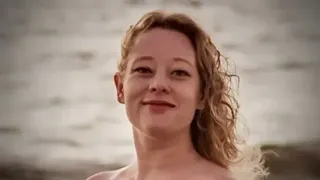March 9, 2014
Oscar-Winning 'Gravity' Director Set to Land on TV
Kilian Melloy READ TIME: 6 MIN.
The San Francisco supervisor who represents the Tenderloin has no immediate plans to initiate landmark proceedings on the building that saw an early transgender riot against police back in 1966. The demonstration at Gene Compton’s Cafeteria occurred that summer in August, now recognized by city officials as Transgender History Month.
Today, the building at 111 Taylor Street is owned by Florida-based private prison operator GEO Group . It has run a reentry facility for people released from incarceration out of the site for 36 years.
On the building’s ground floor was the 24-hour diner where queer and transgender San Franciscans holed up when they had nowhere else to go. Compton’s was where one night in August 1966 – the exact date is lost to time – a drag queen reportedly threw a cup of hot coffee in the face of the police officer who tried to arrest her without a warrant. This was the cumulation of years of trans and gender-nonconforming patrons facing targeted police violence at the diner, according to “Screaming Queens,” a 2005 documentary about the riot made by Susan Stryker, Ph.D., a trans academic and professor emerita at University of Arizona. Stryker is now a visiting professor at Stanford’s Clayman Institute.
That act of defiance sparked one of the country’s earliest protests between trans people and San Francisco police. It occurred three years before the better known Stonewall riots in New York City that is credited with the birth of the modern LGBTQ rights movement.
Earlier this year, 111 Taylor Street became the first property granted federal landmark status specifically for its connection to the transgender movement in the U.S. Despite the building’s recognition on both the California and National Register, those classifications don’t offer protection like a city landmark would.
In 2022, the San Francisco Board of Supervisors declared the intersection in front of Compton’s, and the exterior walls of 111 Taylor Street as the city’s 307th landmark . It provides some level of protection to the building facade from being altered.
But the bulk of the structure was not covered by the local landmark. Local historians and preservation planners are concerned this leaves the site vulnerable.
“The city has landmarked only part of [111 Taylor Street]’s facade, leaving the rest unprotected,” Shayne E. Watson, a lesbian and architectural historian and preservation planner at Watson Heritage Consulting, wrote in email correspondence with the Bay Area Reporter. “The rest of the structure isn’t protected under city law. So yes, the building is still at real risk unless the local designation is expanded.”
Watson specializes in LGBTQ+ historic preservation and serves on the advisory board of the Castro LGBTQ Cultural District. She co-wrote a citywide LGBTQ context statement nearly a decade ago that recommended properties like the Compton’s site and others of historical importance to the LGBTQ community be deemed official city landmarks.
District 5 Supervisor Bilal Mahmood, a straight ally, had told the San Francisco Chronicle in May that he planned to introduce a resolution to expand the local landmark so it covered “the entire property in the coming weeks.” Yet, he never did and recently told the B.A.R. that he doesn’t plan to nominate the building as a city landmark just yet.
Instead, the freshman supervisor said his focus is on the GEO Group’s operations at the site. Mahmood spoke at the Board of Appeals hearing on July 16 in support of removing the company from the building, but the city oversight body voted to uphold a letter of determination allowing GEO Group to operate its reentry program there.
Mahmood is now preparing for a public hearing of GEO Group that he called to look into the recent death of Melvin Bulauan, a former resident of 111 Taylor who died about a block away July 14. Bulauan’s family members and members of the Comptons x Coalition have raised allegations of “prison-like” treatment at the company’s reentry facility.
“Our focus right now is on the hearing, to understand the current status of the facility and assess next steps from there,” Mahmood said in a phone interview with the B.A.R. “We are aligned with the community in trying to get GEO Group out of the Tenderloin and out of [111 Taylor Street].”
Monica Hook, vice president of communications for the GEO Care division, previously stated via email that the GEO Group was not taking questions regarding Bulauan’s death. But according to Hook’s statement, Bulauan left the facility without authorization on July 13. He was reported and discharged by GEO’s Taylor Street Center. The center was notified on July 15 that Bulauan had died, and it had no additional information.
As for landmarking all of 111 Taylor Street, Mahmood told the B.A.R. he has not ruled it out. After the upcoming subpoena hearing, he said, "Anything is on the table,” and that he will look to the results of the hearing for “the best path forward.”
The date for the GEO Group hearing is not yet confirmed, but Mahmood anticipates it will take place in October.
Landmarking offers some protections
A city designated landmark affords safeguards under Article 10 of the San Francisco Planning Code, which declares the protection and perpetuity of culturally significant sites.
Though, with the recently approved demolition of San Francisco’s No. 299 landmark to make way for a high-rise and a new fire station, there is trepidation regarding the strength of those protections among preservationists.
Kerri Young, programs and communications director at San Francisco Heritage, told the B.A.R. in a phone interview that it’s been a “bad year for preservation.”
“There have been a lot of misunderstandings about the role of preservation. ... The goal is to retain these special places while continuing to help the city flourish around it and with it,” Young said. “In the midst of these state housing laws and upzoning across the city, preservation protections that we have like landmarking … they’re some of the last tools that we have to protect some of our special places.”
An effort to reclaim 111 Taylor Street is being led by local activists, residents, historians, and scholars as the Compton’s x Coalition . Their rallying cry is to “liberate” the site of the GEO Group.
One of the tools of this effort is city landmark designation.
Wilder Zieser of the coalition told the B.A.R. July 24 that individual efforts have been made to “advance the historic landmark designation for years.”
Meanwhile, Stryker said that local landmarks are important.
“Achieving a city historic landmark designation can help bring under-appreciated events in a minority community's history into greater public awareness, and hopefully lead to greater appreciation of diversity that actually exists but might otherwise remain unknown,” Stryker stated in an email to the B.A.R.
Jupiter Peraza, a trans woman who is a Compton's x Coalition legislative research committee member, said that Mahmood's plans are responsive to the community's needs.
"As of now, [city landmarking] is still in the works. We also acknowledge that there are things that have come up in our journey to liberate the building," she told the B.A.R. July 31, referring to the death of Bulauan.
"I think that the redesignation falls in a celebratory mood that doesn't really reflect where we are now with the building," Peraza added
Peraza also praised Mahmood and his office for taking direction from the Tenderloin community.
"It's been great to collaborate with Supervisor Mahmood's office,” said Peraza. “They are great partners, and they truly understand the vision of what we are trying to do in honoring transgender and queer history of the Tenderloin, specifically at 111 Taylor."
The landmark process can be initiated by anybody, including community members. But, if the process is initiated by a supervisor, the city’s Planning Department and its Historic Preservation Commission have 90 days to take up the matter and hold a public hearing on it.
Following the oversight body’s vote on the landmark request, the supervisors then take it up to take final action on the matter. They do not need the property owner’s support to approve the landmark, as explained by city planners in a guide about the local landmarking process.
Updated, 7/31/25: This article has been updated with comments from Jupiter Peraza of the Compton's x Coalition.






